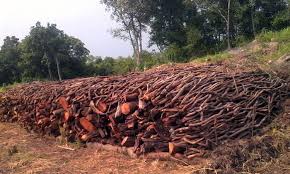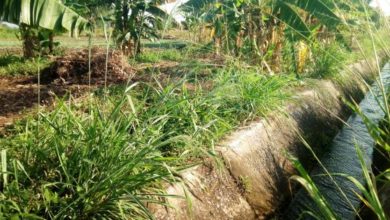
Environment
ENVIRONMENTAL PROBLEMS ARE POLITICAL PROBLEMS, NEED POLITICAL SOLUTIONS

Environmental Problems are Local, National, and Global – novel solutions possible here.
Acholi Sub-Region dare Uganda government never to deplete their forest, saying ‘this country is our, we must live here.’ Living here means we must keep it well as it was kept for us. Our children must find it safe and leave it safe for their children too!
Charcoal is key commodity we use to feed ourselves and our children, we must make it production is sustainable. Charcoal is the only political negotiating tool, if Uganda Government want our charcoal they must agree to our demand.
GULU-UGANDA: East Africa Region,
50 world academicians’ researchers debating environmental politics-environmental justice cord name Gulu Conference, that take place in Gulu on Monday July 16th to July 17th mourns forest depletion in Northern Uganda an attributed it to negligence by government.
“Charcoal, identifying the problems, seeking solution” Adam Branch, Director Centre of African Studies Cambridge University, senior researcher Makerere Institute of Social Research says.
He says government of Uganda has failed in their renewable energy policy. Which indicated that 61 percent of total energy consumption should be modern and clean by 2017.
He wondered why Uganda government allow for depletion of forest coverage by engaging in charcoal burning, lumbering and illegal business in logs and yet Uganda Vision 2040 claims: “Full energy modernization by 2040”. He raised that besides provision of power plants, charcoal will remain as it will only be expanded.
“Failure of policymaking on charcoal nationally and regionally lead to massive loss of tax revenues. It needs innovative solution based on new thinking” Adam argued.
He was speaking during a conference on International Environmental Day in Gulu town. The conference was funded by UK Research Council; Authorization obtained from Uganda National Council of Science and Technology and Uganda government under the theme: “Environmental Politics and Environmental Justice in Post-War Northern”
Mr. Adam says environmental legacies of the war is a new forms of environmental violence facing Acholi community in the 2st Century, environmental problems are political which need political solutions in a local, national, and global-novel approaches possible.
Mr. Adam stated that in a research fieldwork carried out in July-November 2017 finding indicates that the most affected districts: Gulu, Amuru, Nwoya, Pader and Lamwo. He argued that the primarily interested in community perceptions of environmental problems and solutions.
The researcher who spent two days lecturing in the conference at Bomah hotel made 50 presentations to 200 participants who attended. Their outputs dwelt in academic journal articles and books on policy-oriented report by Human Right Focus (HURIFO).
Mr. Adam says what contribute to policy brief and draft bill leading to depletions of forest coverage are; large-scale commercial farming and plantations, conservation, animals and park. Others includes mining and urbanization.
CHARCOAL
Mr. Adam says in Africa, charcoal is the primary energy source for over 70 percent of urban households. In Uganda, report states that 90 percent households in Kampala depend on charcoal as sources of energy for cooking because they can’t afford gas and electricity.
And yet Uganda’s urban population is expected to double by 2040, charcoal demand increasingly is put at 5% per year. However charcoal demand in Uganda today is at 40% with the biggest supply in a period 10 years to date comes from northern Uganda.
Besides charcoal and trees cutting from northern Uganda provides income for hundreds of people, but most revenue goes to large merchants without improving rural peoples’ livelihoods because those dealing in bulk are reported to be top government officials and high ranking security officials and the money ends in individual’s pocket without raising revenues to local government, and sustainable ecologically production measures. Mr Adam also noted that the Uganda government do not ensure regular supply for national energy security.
He says his research finding, indicates that forest cover shrank over the last 100 years from 10 million to 3.6 million hectares. UNDP report indicated that 80,000 hectares of the forest cleared annually for charcoal and timber cutting contributing to a total of 1.8% of forest land being lost annually.
“Acholi Sub-Region especially Gulu and Amuru district forest covers has been reduced by half, 4000-5000 bags of charcoal removed from just one district daily.” The report further reveals.
Other factor causing deforestation is cited on land clearing for agriculture. He says the impact on hydrological cycle; droughts and floods destroys solidarity and exacerbating tensions within community leading to spiritual devastation and loss of commons, due to lack of “ecosystems services” provided by forests.
In Acholi Sub-Region, over 10,000 court cases has been registers in the 8 districts of Gulu, Amuru, Nwoya, Pader, Kitgum, Omoro, Agago and Lamwo with increasing land conflicts and pressure on communal land tenure arrangements.
The post-war conflict in Acholi Sub-Region has taken the community backward in term of livelihood and production, Stagnant small-scale, household labor of individual or families producing small amounts, often women with hand tools selectively cut trees for survival unlike in the past where people relies on livestock and cotton production and exportation, the researcher alludes.
“Can you imagined that household earning income to supplement farming, or for those with few productive assets. Earn 10% of total proceeds, can’t demand higher prices because of lack of organization and high supply. The charcoal and timber sell to transporters or agents, some sell directly to urban and peri-urban retailers or consumers.” He wonders
And yet before 1990 no evidence saw that household production is destructive of the environment, but with intensive cutting practices using power saws it clears larger forests for charcoal becomes environmental politics and environmental justices that need political solutions.
Mr. Adam says because Uganda, 44 million tons of tress biomass used annually could rise to 133 million tons and tree resources can sustain supply only 26 million tons.
Top-down control of production and transport by government officials has breed corruption that led to violence in community since the land system is under communal ownership and majority of the affected forest and woodlands are found on contested land that this resulted to conflicts and deprivation of the locals.
“The landowner who sells the trees make money out of it, you who you do not have husband you don’t get money.” This has led to significant deforestation and forest degradation and environmental violence.
Why are people selling trees for industrial production?
Mr. Adam says because the poor rural are ignorant of the consequences. He believed that people are desperate, precocity, unemployed, and insecurity over land and coercion. They also want to raise school and medial fees.
He cited Amuru district for topping land conflict over issues of land grabbing in Acholi Sub-Region. Case study in Apaa land, Government of Uganda de-regazzeted 40 square kilometer for game reserve as Madi east game reserve when the inhabitant community were in Internally Displaced Persons’ camps in 2002, and the land was given to a South African foreign investor Martin Bruce, arguing it is the reason people are selling trees, and currently Uganda People Defense Forces (UPDF) soldiers, Uganda Wildlife Authority (UWA) are evicting civilians in Apaa areas.
“People have been selling trees with the hope that they will gain from it when the government takes away their land, because the land has been given to foreign investor.” Adam reiterates.
He says elites selling trees purported for opening land for agriculture, plantations, commercial tree planting is a way forward instead elites are looking for significant profit while exploiting the resources, dividing vulnerable society that form the population in Apaa hence conflict.
He says It has been worst since the government workers, Districts Forest Officers in Acholi Sub-Regions connives with tree cutters to cut Afazelia Afrikana commonly known as Beyo trees by giving permission and it makes it hard to fight the vice because they have security backups from top high ranking security officials in the government.
Mr. Adam noted that the community who sells their trees know even the implication for deforestation, but they don’t have the will to stop selling trees. He said people should stop blaming the locals suffering environmental devastation for causing that environmental destruction.




